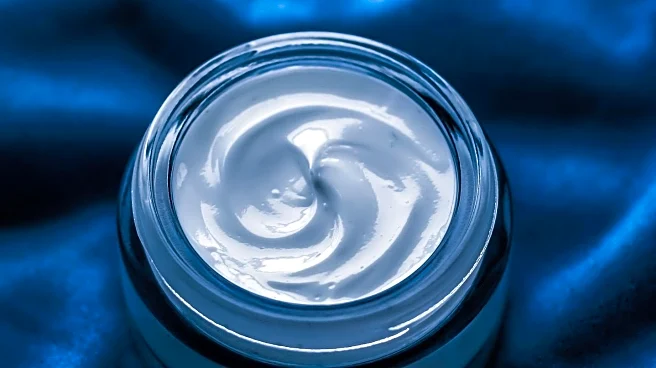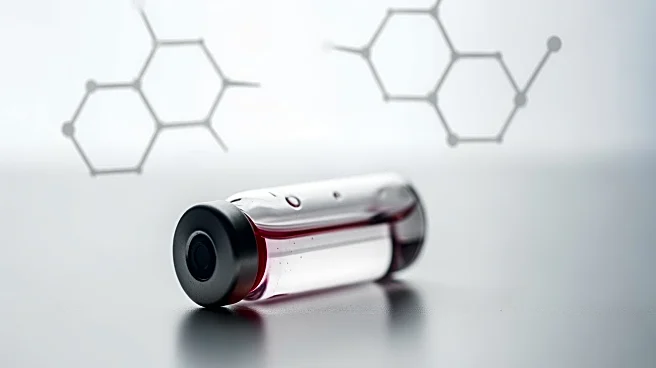What is the story about?
What's Happening?
Hydroquinone, a topical skin-lightening agent, remains a controversial yet effective treatment for hyperpigmentation, despite being banned in several countries and removed from over-the-counter availability in the U.S. Dermatologists continue to prescribe it for conditions like melasma and post-inflammatory hyperpigmentation due to its proven efficacy. Concerns about its safety stem from potential carcinogenic effects and a side effect known as ochronosis, which causes permanent skin discoloration. Dermatologists emphasize the importance of using hydroquinone under medical supervision to mitigate risks and ensure safe application.
Why It's Important?
The ongoing use of hydroquinone highlights the complex balance between efficacy and safety in dermatological treatments. While it offers significant benefits for those struggling with hyperpigmentation, the associated risks necessitate careful management and professional oversight. This situation underscores the need for informed decision-making in skincare, where patients must weigh the potential benefits against the risks. The controversy surrounding hydroquinone also reflects broader challenges in the beauty industry regarding ingredient safety and regulatory standards.
What's Next?
As dermatologists continue to prescribe hydroquinone, there may be increased efforts to develop alternative treatments that offer similar efficacy without the associated risks. Regulatory bodies might also revisit the safety assessments of hydroquinone, potentially leading to revised guidelines or new research initiatives. Patients and healthcare providers will need to stay informed about the latest developments and recommendations to ensure safe and effective treatment outcomes.
Beyond the Headlines
The debate over hydroquinone raises important questions about the role of regulatory agencies in ensuring product safety and the ethical considerations of prescribing potentially harmful treatments. It also highlights the need for ongoing research and innovation in dermatology to provide safer alternatives for skin-lightening.














